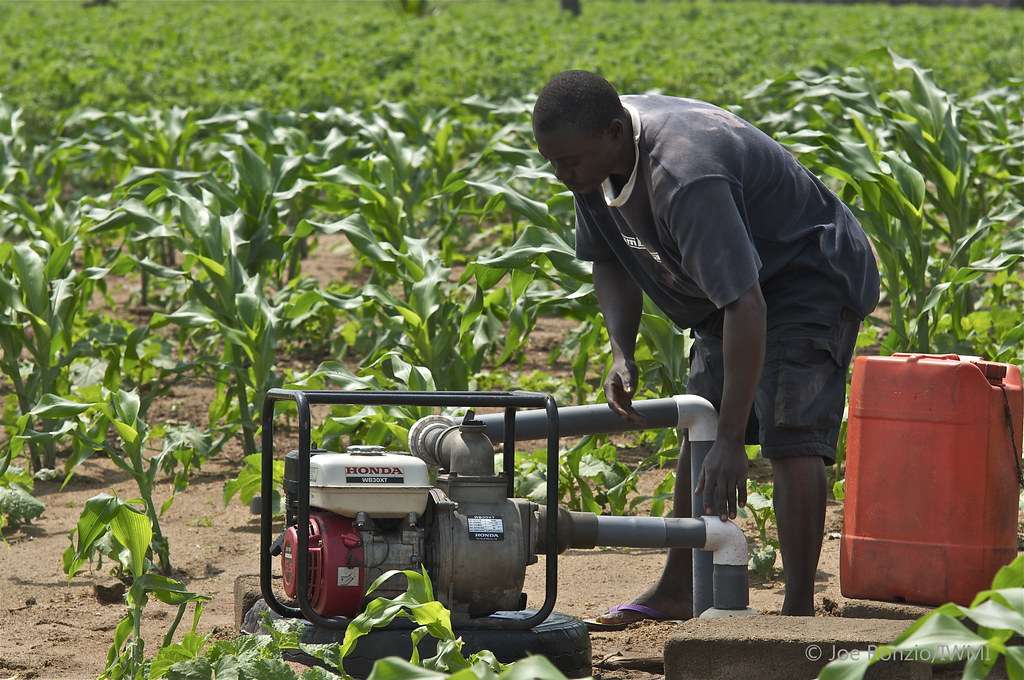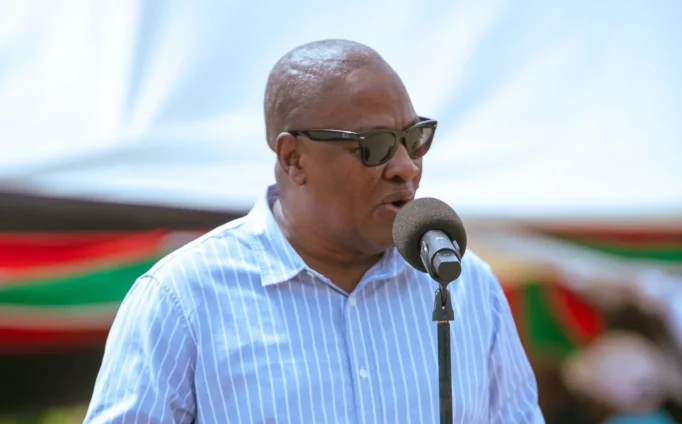The flagbearer of the National Democratic Congress (NDC), John Dramani Mahama has indicated that to boost the 24-hour economy policy, he will build industries in all the regions by leveraging the production power of each region.
He indicated that his government will partner with the private sector to establish industrial zones which will focus on the production of value-added goods from raw products like cashew, palm, cotton, cocoa, Shea nut, and cassava among others.
Defending the policy initiative of the NDC’s flagbearer, Esq. Joyce Bawah Mogtari, Special Aide to John Dramani Mahama and Legal Practitioner, indicated that while there is a challenge regarding the unavailability of jobs there is also a high importation of goods that the country can produce.
She noted that for the country to attain a well-rounded economic development, it must move beyond the Greater Accra and Ashanti Regions and reach out to the remaining fourteen regions to ensure the utilization of the resources in these regions to enhance growth.
“Mr. Mahama has clearly stated that each region has a particular crop one way or the other that will probably develop better than it will in other places. We also do know that some regions in particular are actually the food baskets of this country”.
Esq. Joyce Bawah Mogtari
She further argued that the former President aims to provide an industrial enclave in all the regions to improve production and productivity, indicating that there would be a focus-based production where some regions would be chief producers of specific crops.
“For example in Greater Accra and Volta regions, we can focus clearly on just maybe cassava and cassava production,” she added.
Moreover, Esq Bawa Mogtari indicated that the next NDC government will develop industrial areas in the various regions which will provide all the needed incentives to increase production.
She asserted that the present initiative proposed by John Mahama is similar to the Free Zone Enclave policy that was reactivated under the Atta-Mills-Mahama administration.
She alleged that the Free Zone Enclave factories, 140 of them, which were reactivated under the then NDC administration were focused on producing different goods that encouraged growth in the country’s economy.
Production And Economic Development
Moreover, Esq. Bawa Mogtari argued that the country can leverage the massive production of food crops such as rice to reduce the importation of goods and also reduce the pressure on foreign exchange and prevent the country’s constant borrowing from its creditors.
She further indicated that locally-produced rice cannot compete with exported rice from India and other rice-producing countries due to the high prices of local rice caused by high-interest loans given to farmers.
She stated that the next Mahama government through this initiative will ensure that locally-produced rice has a competitive edge on the market, indicating that “he [Mahama] has done it before and he will do it again”.
Mahama’s Special Aide also noted that the industrial enclave will ensure that people have access to farmlands and an all-year-round water supply made available through irrigation practices.

“What we also know is that when Mr. Mahama was in office, he started the Kwalugu dam which was supposed to produce water all year round so people can continue to farm. For as long as we have water readily available in large supply, most of our regions especially the dry Sahilian regions farm all year round”.
Esq. Joyce Bawah Mogtari
She emphasized that the country’s high importation bill can be countered by manufacturing more and adding more value to unfinished and semi-finished goods, arguing that the presence of an industrial enclave would encourage people to add value to their raw produce.
Furthermore, Madam Joyce Mogtari indicated that the NDC’s proposed 24-hour economy will largely be driven by exports, high productivity and production, and lower interest rates to close the gap between demand and supply.
She stated that if the government is successful with the initiative, there will be an increase in job creation, a reduction in the importation of goods, and an increase in exportation as the various regions will be opened to different markets to trade.
Conclusively, Esq. Bawah Mogtari indicated that with the right logistics in place, Ghana’s economy can make a turnaround through industrialization that enhances production and import substitution.
READ ALSO: Government Fails In Supporting The Creative Sector – David Osei





















